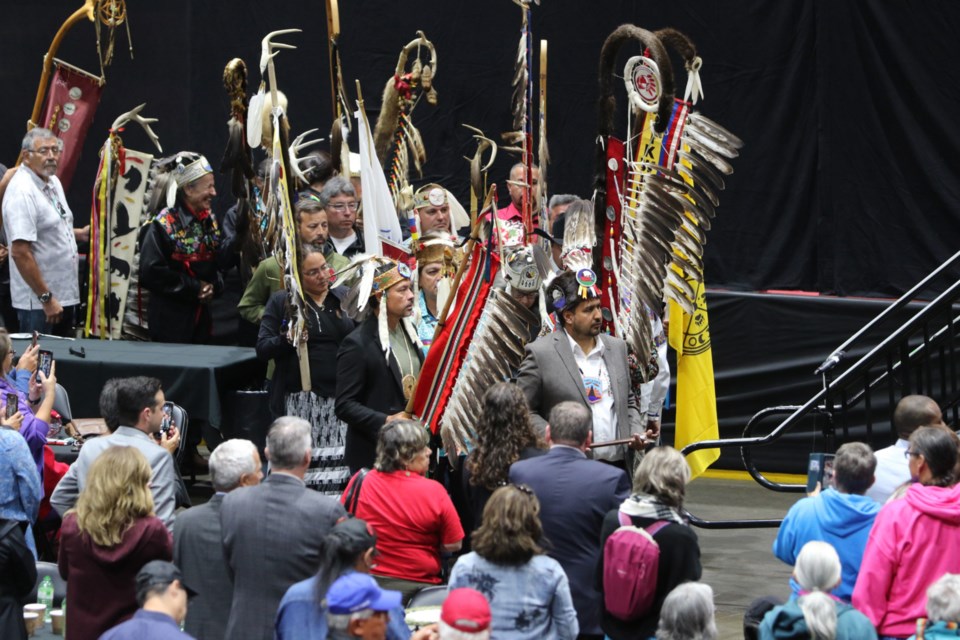The legal team that negotiated the proposed $10-billion settlement agreement for unpaid annuity increases in Robinson Huron Treaty territory expects the compensation agreement to be finalized in the coming weeks.
The news comes after Garden River First Nation issued a media release announcing that it had approved the settlement agreement Oct. 30.
The Robinson Huron Litigation Fund has confirmed via social media that all 21 First Nation signatories to the 1850 treaty have now signed off on the settlement agreement, which will see Canada and Ontario pay $5 billion each in compensation to treaty beneficiaries and trustees.
The litigation team says it hopes to have the settlement signed by all parties by the end of November or early December.
“A date for executing the settlement agreement cannot be set until Canada and Ontario complete their internal approval processes,” said the statement. “Once the settlement is signed by the parties, we will go before the Superior Court of Justice to dismiss the past compensation portion of the claim.”
Funds will be distributed to First Nations from the Robinson Huron Litigation Fund trust “based on a formula agreed to by the treaty leadership and their councils,” according to the statement.
A timeline posted to social media by the litigation fund shows that it expects to receive the $10-billion settlement by February 2024, with per capita distributions from the historic annuities settlement potentially starting to flow into communities during the spring and summer of next year.
The Robinson Huron Treaty Litigation Fund is pleased to share an update with you on the proposed settlement agreement that was announced on June 17, 2023. All 21 First Nations have completed all the required documentation to move forward with the signing of the settlement. (1/2) pic.twitter.com/9e9rO9CK2E
— Robinson Huron Treaty 1850 - Annuities Case (@1850RHTreaty) November 3, 2023
A number of communities have launched their own community engagement sessions following the dissolution of the Office of Mizhinawe and the resignation — or firing — of retired justice Harry Laforme, who had been leading the community engagement sessions in Robinson Huron Treaty First Nations prior to his departure from his role as Mizhinawe in September.
“We heard from you — our community members — about the need for more communication at the community level,” said the statement. “We heard from many community members that you want to communicate directly with your chiefs and councils to have your questions answered and provide your input into discussions about the use of compensation funds.”
On Tuesday, the Supreme Court of Canada will hear an appeal brought by Ontario that seeks to overturn a decision by the Ontario Court of Appeal which upheld Justice Patricia Hennessy’s Superior Court of Justice decisions in the first two stages of the Robinson Huron Treaty annuities claim.
Robinson Huron Waawiindamaagewin said in a recent social media post that Ontario will argue the Court of Appeal was wrong in upholding "Hennessy's interpretation that Ontario had a mandatory and reviewable obligation" to increase annuity payments. The province will also argue that "awarding compensation for historical treaty breaches is inappropriate."
"This means that Ontario is claiming that the treaty should be interpreted to mean that increases to the annuity should be at the Crown's discretion, and that it is not appropriate for courts to intervene," the social media post said.
The hearing will be livestreamed on the Supreme Court of Canada website.
Robinson Huron Waawiindamaagewin will also livestream the court case at the University of Sudbury's Canisius Hall as part of the organization’s treaty week events taking place in Sudbury Nov. 7 to 9.
